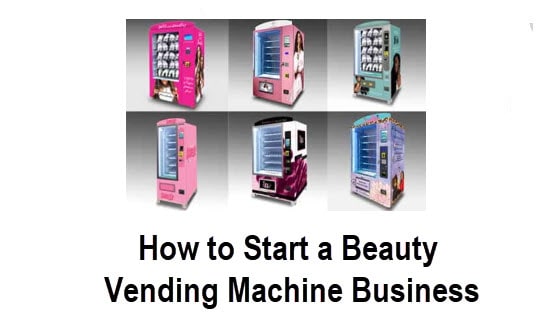How To Start a Chronic Care Management Business

Hey there,
If you were wondering,
How to start a chronic care management business?
You are in the right place.
Starting a chronic care management business can be ambitious, but you can make it a reality with the correct information and support.
Let’s help you get started.
What Is a Chronic Care Management Business?
A chronic care management business is a type of health service provider that focuses on the continuity of care for individuals suffering from chronic illnesses or conditions.
Chronic care management aims to ensure that patients receive the best quality care to maintain their health.
It often involves coordination between multiple providers, such as doctors, nurses, pharmacists, physical therapists, and dietitians.
It involves developing individualized plans to manage a person’s health condition, monitoring progress, and ensuring that medications are taken correctly.
These services may also include education about the patient’s disease process, nutritional counseling, lifestyle changes, or preventative measures.
Chronic care management aims to help patients remain healthy and out of the hospital by giving them the information they need to make educated decisions about their health and be better prepared for unforeseen health concerns.
With this in mind, an effective chronic care management plan should provide patients access to well-coordinated medical care and emotional support when needed.
Exploring the Benefits of Chronic Care Management (CCM)
Chronic care management businesses provide a valuable service to patients who require long-term support and care.
By taking an active, evidence-based approach to improving patient outcomes, CCM businesses offer comprehensive services that encompass a wide range of healthcare needs.
These services may include educational resources, medication management, lifestyle coaching, and more.
How to start a chronic care management business: A Step-by-Step Guide
1 – Establish a Strategy and Build a Care Team.
It is essential to develop a well-thought-out plan to ensure the success of your CCM program. Map out the logistics of running your program and monitor what resources are necessary for its smooth functioning.
Train and assign qualified care managers — such as registered nurses, licensed practical nurses, certified medical assistants, or health coaches (in some areas) — for managing patient visits, scheduling, enrollment processing, notifications, consent documentation, and other related activities.
If there needs to be more staff time devoted to the CCM program, consider hiring an additional care manager.
2 – Understanding the Requirements for Starting a CCM Business
Before launching a CCM business, a few requirements must be satisfied. You’ll need to obtain the appropriate licenses and certifications relevant to your organization and have the necessary insurance coverage.
It’s also essential to develop strong customer service policies and procedures to deliver quality service.
3 – Choosing the Right Niche & Audience for Your CCM Business
When launching a business in chronic care management, one of the most significant decisions you’ll have to make is determining the demographic of your ideal clients and the specific market segment in which you want to operate.
This decision should be based on research into local demographics and trends in the industry, as well as an awareness of your strengths and capabilities in providing this type of service.
4 – Creating a Solid Business Plan and Marketing Strategy
A detailed business plan should form the foundation for any chronic care management business start-up effort.
This document should outline strategies for achieving long-term goals such as profitability, sustainability, growth potential, etc., as well as short-term objectives such as marketing campaigns and customer acquisition tactics.
5 – Have Realistic Expectations for Patient Enrollment
One in four adults and 70% of Medicare beneficiaries live with two or more chronic illnesses. In response, CMS introduced Chronic Care Management (CCM) to help preventatively treat these diseases–but the program has yet to see high enrollment numbers.
Despite potential growth, providers have yet to get an average 30-40% participation rate from their promotion efforts and quality of care initiatives. It’s up to health professionals now if CCM will reach its goal for widespread population use.
A realistic outlook is key to success. CCM participation rates may have room for improvement. Still, this reality should encourage and empower you – it’s an invitation to chart your path toward achieving better results on behalf of clients such as healthcare providers.
By remaining humble about expectations, a deeper understanding will guide smarter business decisions that can build lasting trust-bounded relationships with those who matter most.
6 – Finding an Appropriate Location and Expansion Options
When planning for expansion or relocation, it’s important to consider what type of environment best suits your desired clientele base, staff capabilities, and overall budget considerations.
Aiming for premises that offer convenience for customers is often a significant factor in deciding which location is right for you.
7 – Researching Facilities, Technology, and Equipment Necessary to Run a Successful CCM Business
It’s essential to research and evaluates the range of facilities, technology, and equipment necessary to operate effectively.
This research should cover communication technology, diagnostic tools and devices, office furniture, and other items needed to maximize workflow efficiency.
8 – Establishing Professional Partnerships with Healthcare Providers and Insurance Companies
As you build your CCM business, you’ll need to create relationships with local healthcare providers and insurance companies to gain more clients.
These partnerships can be precious in building credibility within the industry and providing opportunities for referrals that can lead to more significant revenue potential.
9 – Developing Policies & Procedures to Ensure Quality Service Delivery
All businesses need quality service delivery policies and procedures in place to ensure good customer experiences every time.
When working with an at-risk population such as those requiring chronic care management services, it is even more critical for organizations to have clear guidelines for staff behavior and protocols for patient safety and data protection measures.
10 – Identifying Funding Sources and Financial Strategies to Invest in Your Business
A comprehensive plan for financial investment is necessary for any successful business venture, especially one related to chronic care management services where capital may be required upfront before seeing a return on investment (ROI).
You must understand which funding sources are available – such as government grants or private investors – so that you can make decisions based on accurate information regarding the best way to invest funds into your organization.
11 – Tailoring Services to Meet the Needs of Specific Patient Groups
When it comes to offering services tailored to the requirements of a diverse variety of patient categories, any company specializing in chronic care management will confront its unique set of obstacles.
This could include tailoring services according to age, disability level, culture, language ability, or any other factor requiring special consideration when delivering care.
12 – Training Staff on Best Practices and Accreditation Protocols
I know I stated training your team and recruiting at the beginning of the article, but I need to elaborate because it is a critical part of starting a chronic care management firm.
To ensure quality performance and professional standards, it’s important that staff within a CCM organization are adequately trained and knowledgeable on best practices relevant to their industry.
Additionally, many organizations have specific accreditation protocols and competency tests in place for certain roles, which must be adhered to before commencing work with patients.
13 – Utilizing Mobile Solutions for Data Collection & Communication
Mobile technology offers invaluable support for chronic care management businesses by enabling more accessible access to data collection and communication between patients, their families, and healthcare providers.
Such solutions can help improve outcomes by making it more straightforward for staff to monitor individual care plans on an ongoing basis.
14 – Understanding Payment Models & Reimbursement Procedures
Different payment models are often utilized depending on the service offered and how it is delivered (e.g., via telemedicine or in-person).
You must understand the various payment structures available to accurately project potential revenue streams and reimbursement procedures across all channels relating to your business activity.
15 – Understand the Necessity of Billing and Reimbursement Codes
When billing for chronic care management services, it is important to know the necessary items you must have to submit a claim through CMS.
These include:
CPT Codes reflect each program you are managing for the patient.
ICD-10 codes that correspond to any conditions within that program, date, and place of service, as well as the provider name.
Billing for chronic care management involves calculating each patient’s monthly time spent on CCM services.
When billing, ensure CMS requirements are met for every patient each month.
Submit all claims to CMS monthly and send an invoice to patients receiving CCM services.
Lastly, ensure there are no conflicting codes that have been billed.
Knowing the care manager assigned to a patient is also helpful if you need to be audited.
16 – Developing Effective Strategies for Patient Engagement & Retention
Keeping patients engaged and loyal is crucial for any CCM business success; this means finding ways to maintain healthy relationships over time, even if there is no immediate economic benefit.
There are various strategies available such as incentive programs or loyalty schemes which can go some way towards achieving this goal; it’s essential, however, that you fully understand their effectiveness before implementation to avoid unnecessary costs or waste resources doing so unnecessarily.
17 – Exploring New Opportunities and Innovations in the Field of Chronic Care Management Services
The ever-evolving field of chronic care management presents numerous opportunities for those looking to maintain an existing market presence and expand into new areas of service delivery or innovation based on patient engagement initiatives or technological advancements, which may facilitate quicker, more accurate diagnosis services, etc.
Keeping up-to-date with emerging trends within the industry is key here; attending relevant conferences and trade shows is often a great way of networking with peers who have similar ambitions, as well as staying informed about industry developments.
FAQS
Is Chronic Care Management Profitable?
Compared to the usual 20-30% net profit margins of traditional healthcare practice clients, our RHC and FQHC customers benefit from a much healthier 45-55% profit margin — thanks in significant part to their higher CCM reimbursements than those provided for non-complex CCM services.
Is Chronic Care Management Worth It?
Chronic Care Management is a program designed to streamline care coordination for the millions of Medicare beneficiaries facing chronic medical issues. It provides people with greater access to quality healthcare, elevates patient contentment, and decreases the risk of long-term medical complications.
Can an LPN Do Chronic Care Management?
You will have experience identifying resources and coordinating needs for chronic care management patients.
What Do Chronic Care Managers Do?
Coordinating community and social support services. Disease self-management education and support. Health coaching. Health education, including health literacy.
Can Pharmacists Bill for Chronic Care Management?
A pharmacist is prohibited from giving consent to a patient, creating a detailed care plan, or billing for CCM services under CCM regulations.
What Does a Chronic Care Manager Do?
Coordinating community and social support services. Disease self-management education and support. Health coaching. Health education, including health literacy
What Is the Purpose of Chronic Care Management?
Patients with multiple chronic illnesses qualify for Chronic Care Management, an innovative form of care management that offers ongoing support through sustained communication between patients and their caregivers.
Benefiting from this specialized coverage can help maximize the health outcomes of those living with long-term conditions.
As CCM asserts, the patient’s care team can submit reimbursement requests for their efforts in attending to the individual’s difficulties.
Can Specialists Bill for Chronic Care Management?
CCM services may be billed by doctors, nurse practitioners, physician assistants, specialists, clinical nurses, and certified nurse midwives.
Additionally, CCM services may be rendered by licensed clinical personnel engaged by the billing provider or practice who work under their overall direction.
What Is the Difference Between a Care Provider and a Care Manager?
While the Caregiver is more involved with the client’s day-to-day activities, the Care Manager sets up these duties and oversees the administration and outcome of the care.
Do Care Home Managers, Have to Be Registered?
Some providers’ registration requirements include having a registered manager. Managers who have been appointed must also apply, satisfy us of their fitness, and adhere to all other regulations and laws that are pertinent.
Can a Care Home Run Without a Registered Manager?
Any provider with a registered manager attached to their registration is in breach of that condition if they don’t have a registered manager. This offense is under s33 (b) HSCA unless the provider has a ‘reasonable excuse.’
Is a Ccm Certification Worth It?
Beyond certification, 98 percent have specialty experience in hospital case management, managed care, and care transitions.
Among CCMs who are supervisors, 99 percent have recommended the credential to others, and a substantial majority (75 percent) prefer or require the CCM when hiring.
Conclusion: How to start a chronic care management business
In this post, we’ve discussed the critical steps for starting a successful chronic care management business, such as researching necessary facilities, technology, and equipment, forming professional partnerships with healthcare providers and insurance companies, developing policies and procedures to ensure quality service delivery, identifying funding sources and financial strategies to invest in the business, tailoring services to meet the needs of specific patient groups, and providing services to patients.
You may develop a flourishing chronic care management business that helps improve the lives of your patients by following these steps and remaining focused on your goals.
Discover more cost-efficient and simple business ideas when you visit Sickofthaboss.com.
Get All the Necessary Tips to Kickstart Your Entrepreneurial Journey Today.
SickofTheBoss.com is the brainchild of Jack Bastide. It is designed for entrepreneurs and those that want to be. You can find Jack on Facebook or Linked-In.






